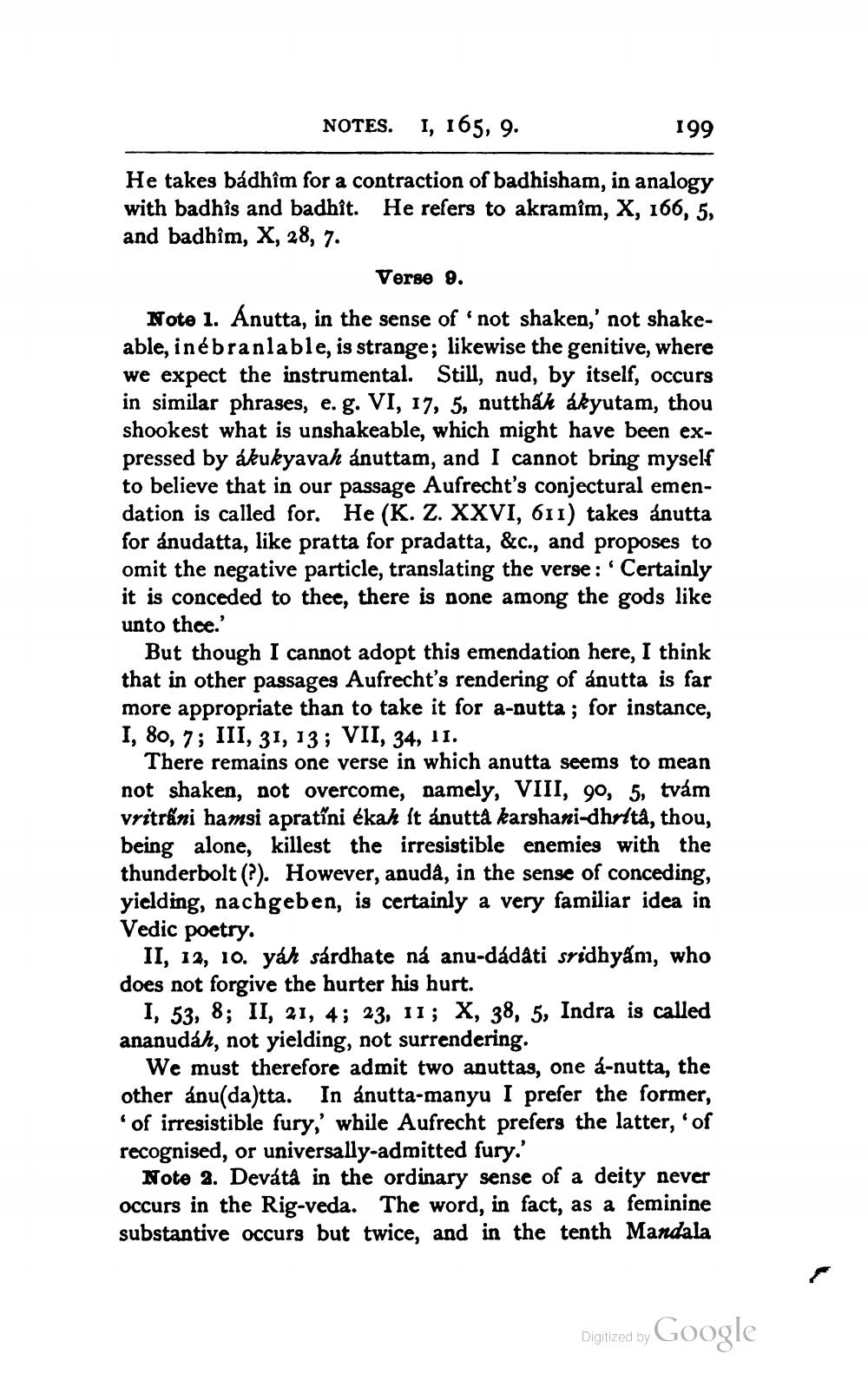________________
NOTES.
I, 165, 9.
199
He takes bádhîm for a contraction of badhisham, in analogy with badhis and badhít. He refers to akramim, X, 166, 5, and badhim, X, 28, 7.
Verse 8. Note 1. Anutta, in the sense of not shaken,' not shakeable, inébranlable, is strange; likewise the genitive, where we expect the instrumental. Still, nud, by itself, occurs in similar phrases, e. g. VI, 17, 5, nutthäh ákyutam, thou shookest what is unshakeable, which might have been expressed by akukyavah ảnuttam, and I cannot bring myself to believe that in our passage Aufrecht's conjectural emendation is called for. He (K. Z. XXVI, 611) takes ánutta for ánudatta, like pratta for pradatta, &c., and proposes to omit the negative particle, translating the verse :'Certainly it is conceded to thee, there is none among the gods like unto thee.'
But though I cannot adopt this emendation here, I think that in other passages Aufrecht's rendering of anutta is far more appropriate than to take it for a-nutta ; for instance, I, 80, 7; III, 31, 13; VII, 34, 11.
There remains one verse in which anutta seems to mean not shaken, not overcome, namely, VIII, 90, 5, tvám vritráni hamsi apratini ékah It Snutta karshani-dhrità, thou, being alone, killest the irresistible enemies with the thunderbolt ). However, anuda, in the sense of conceding, yielding, nachgeben, is certainly a very familiar idea in Vedic poetry.
II, 12, 10. yah sardhate ná anu-dádáti sridhyám, who does not forgive the hurter his hurt.
I, 53, 8; II, 21, 4; 23, 11; X, 38, 5, Indra is called ananudáh, not yielding, not surrendering.
We must therefore admit two anuttas, one á-nutta, the other ánu(da)tta. In ảnutta-manyu I prefer the former,
of irresistible fury,' while Aufrecht prefers the latter, of recognised, or universally-admitted fury.'
Note 2. Devátà in the ordinary sense of a deity never occurs in the Rig-veda. The word, in fact, as a feminine substantive occurs but twice, and in the tenth Mandala
Digitized by
Digized by Google




